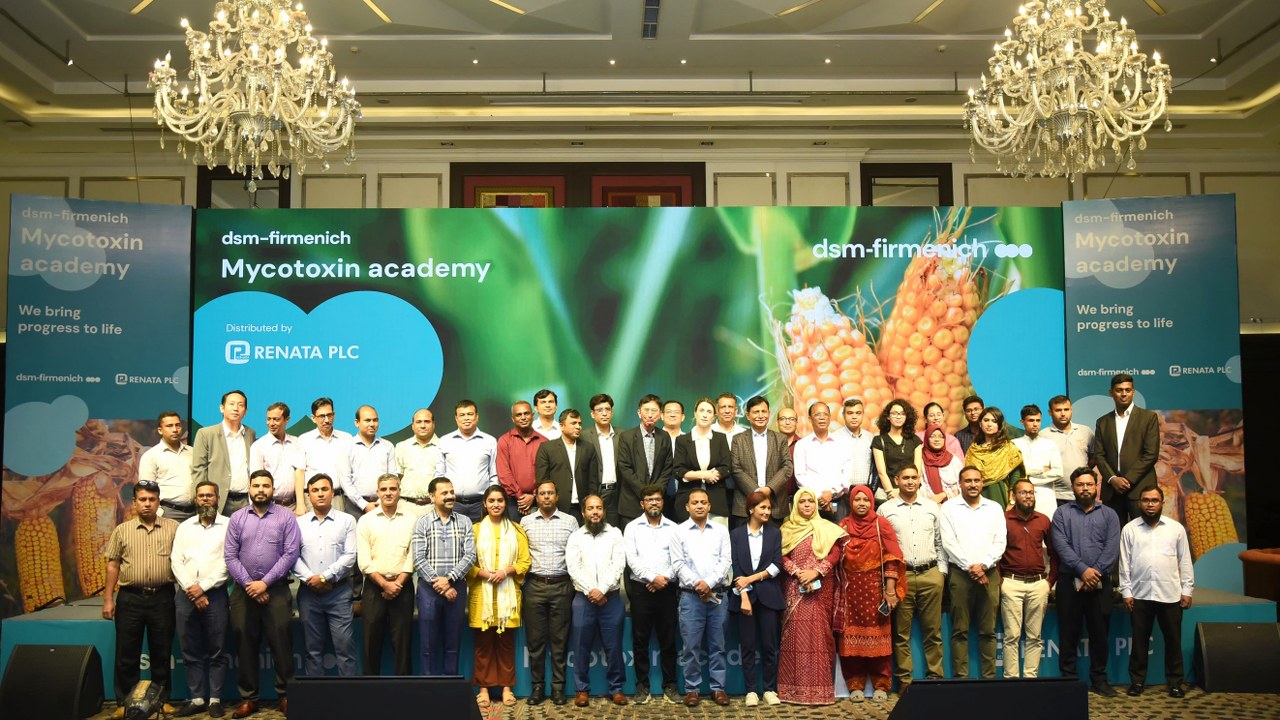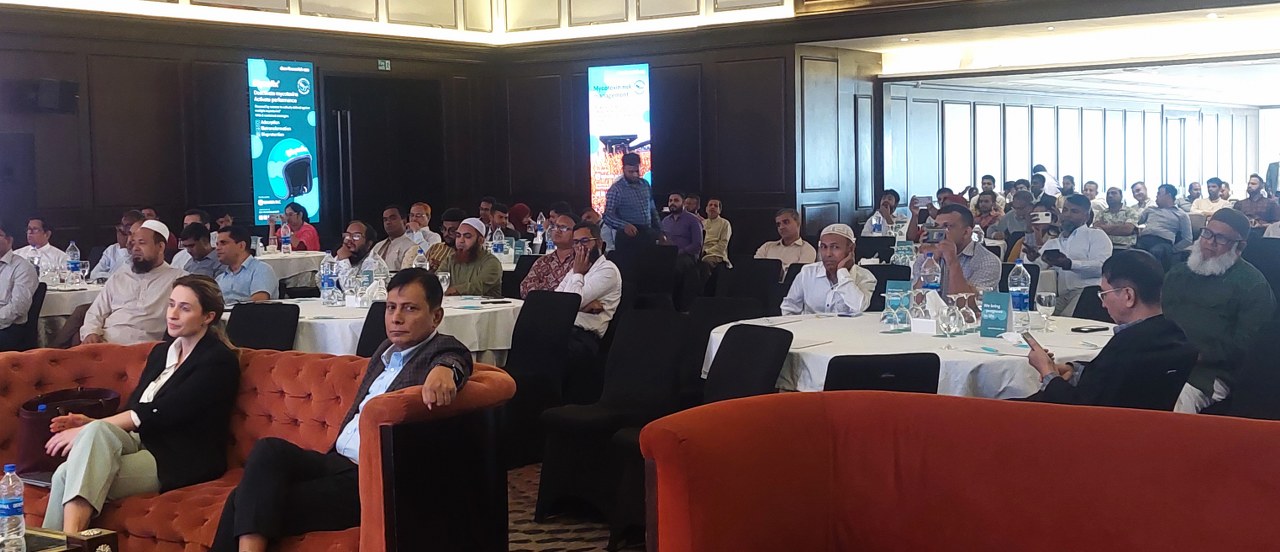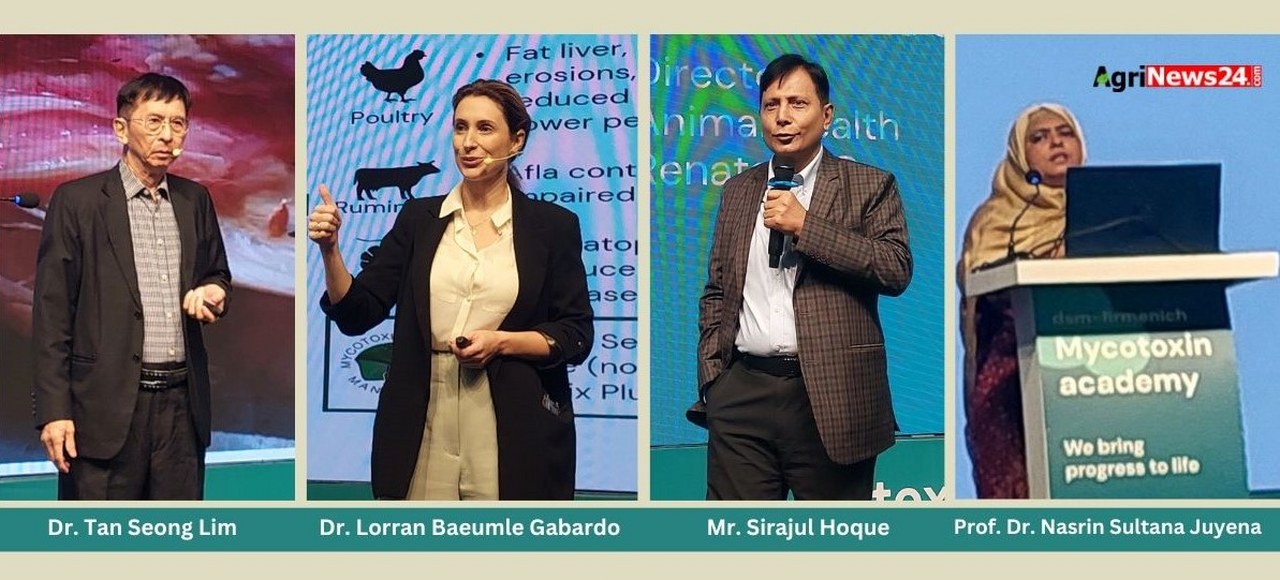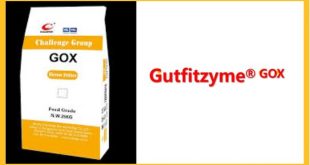 Staff Correspondent: Mycotoxin’s frequent occurrence worldwide and significant toxic effects on both human and animal health necessitate regular monitoring. Diagnosing mycotoxin-induced disorders in animals in the field is often challenging. Therefore, to understand the holistic effects of mycotoxins through knowledge sharing, dsm-firmenich organized an event titled ‘Mycotoxin Academy 2024’ on May 28 at La Meridien Hotel in Dhaka, the capital. According to the organizers, it was a leading platform to exchange crucial knowledge on mycotoxin management in the country’s food and feed industry. The event was supported by DSM’s channel partner Renata PLC. A significant number of entrepreneurs, nutritionists and high officials from the poultry, fisheries and livestock sectors of the country participated in the seminar.
Staff Correspondent: Mycotoxin’s frequent occurrence worldwide and significant toxic effects on both human and animal health necessitate regular monitoring. Diagnosing mycotoxin-induced disorders in animals in the field is often challenging. Therefore, to understand the holistic effects of mycotoxins through knowledge sharing, dsm-firmenich organized an event titled ‘Mycotoxin Academy 2024’ on May 28 at La Meridien Hotel in Dhaka, the capital. According to the organizers, it was a leading platform to exchange crucial knowledge on mycotoxin management in the country’s food and feed industry. The event was supported by DSM’s channel partner Renata PLC. A significant number of entrepreneurs, nutritionists and high officials from the poultry, fisheries and livestock sectors of the country participated in the seminar.
Dr. Tan Seong Lim (Performance Manager, APAC, Animal Nutrition & Health, dsm-firmenich), Dr. Lorran Baeumle Gabardo (Mycotoxin Risk Management APAC, Animal Nutrition & Health, dsm-firmenich) & Professor Dr. Nasrin Sultana Juyena (Department of Obstetrics, Faculty of Veterinary Medicine, Bangladesh Agricultural University) presented the technical papers at the event.
In the welcome speech of the program, Renata director Mr. Sirajul Hoque said that there has been some differentiation of toxins in Bangladesh, this is a big reason for giving a different name to the program this year. DSM has launched a new type of toxin binder, which will soon be marketed in the Bangladeshi market, he said.
At the beginning of the presentation of the technical paper, Dr. Tan Seong Lim presented some illustrations of the adverse effects of climate change around the world. He said that the adverse effect of climate change is not only on humans, it is affecting all life from animals. He said, today I want to talk about the problem caused by fungus. So the fungus, because of this weather changes, they have to also find way to survive, so they find new metabolic pathway to survive.
“Aspergillosis has become a much bigger problem in Bangladesh than in the past. Mycosis is a problem caused by the fungus itself, whereas mycotoxicosis is the excretion, the byproduct excreted by the fungus. So, for mycosis, expanded is a very old problem. I heard about this problem 30-40 years ago when I was a university student. But apparently now they are coming back in bigger scale”- Dr. Tan added.
 Dr. Lorran Baeumle Gabardo discussed in detail about mycotoxin deep issues in the event. She gave a detailed discussion on mycotoxins and presented the results of various mycotoxins in recent research papers done in Bangladesh, India and Nepal. She said, AFLA & FUM have a spotlight in these countries presenting a high challenge specially for liver and gut. T2, ZEN, OTA present medium level of contamination.
Dr. Lorran Baeumle Gabardo discussed in detail about mycotoxin deep issues in the event. She gave a detailed discussion on mycotoxins and presented the results of various mycotoxins in recent research papers done in Bangladesh, India and Nepal. She said, AFLA & FUM have a spotlight in these countries presenting a high challenge specially for liver and gut. T2, ZEN, OTA present medium level of contamination.
Professor Dr. Nasrin Sultana Juyena presented a technical paper titled ‘Zearalenone: A hidden thief of dairy cow’s performance!’ on the occasion. She said, Mycotoxin control is critical to increasing animal productivity, making farms profitable, and providing safe and healthy food to consumers.
Dr. Juyena also said, most dairy farmers in the country have no idea about mycotoxins. They don’t know the mycotoxin test before feeding the cows. So apart from making the farmers more aware about this, there should be adequate number of mycotoxin laboratories in the country.
Dr. Bishwajit Roy, Bangladesh supervisor of dsm-firmenich played the role of moderator in the whole program & other officials of Renata & dsm were also present in the event.
 Agrinews24 কৃষির সাথে, কৃষকের পাশে
Agrinews24 কৃষির সাথে, কৃষকের পাশে






















